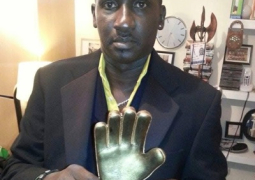
Abidjan, Ivory Coast – As the quarterfinal stage of the ongoing Africa Cup of Nations (AFCON) kicks off on Friday in Ivory Coast, none of the five teams highest-placed teams in the FIFA ranking of December 2023 will feature.
Reigning champions Senegal, 2022 World Cup semifinalists and pretournament favourites Morocco, 2004 champions Tunisia, two-time champions and 2019 winners Algeria, and seven-time AFCON kings Egypt have all been eliminated. Other top teams like five-time champions Cameroon and four-time winners Ghana, have also exited the competition.
In a tournament which has come to be defined by the frequency of upsets, it is the unlikely progression of some of the continent’s lesser-fancied sides that is making the headlines.
As it stands, four of the last eight have never won the competition so the chances of a first-time champion are 50-50. These uncrowned four include perennial underachievers Guinea and Mali, which though boasting talented squads since the turn of the millennium, have never been able to progress beyond the last four. But there are also Cape Verde and Angola who have never even reached the semifinals before.
And some of the other results have been unbelievable: Equatorial Guinea triumphed 4-0 over Ivory Coast, even as Cape Verde won 2-1 against Ghana.
“The results you see in the AFCON are impossible at the Euros or Copa America,” former Nigerian forward Victor Ikpeba tells Al Jazeera. “Imagine the Faroe Islands beating Germany, or England losing to San Marino. Venezuela beating Argentina or Brazil rarely happens, but in African football it is possible.”
In addition, this edition has witnessed an unprecedented number of goals: With 105 already scored in advance of the quarterfinals, it has already surpassed the tallies from the past two editions.
Rising to the challenge
The uptick in goals was expected after AFCON was upgraded to a 24-team tournament, beginning with this edition. Some – including Ikpeba, the 1997 African Footballer of the Year – argue that it is precisely this factor that is responsible for the improved fortunes of historically modest nations in this year’s edition.
“The expansion of the AFCON from 16 to 24 teams has given opportunity to so-called minnows to punch above their weight when they face some of the most successful countries on the continent,” he says.
“So many shocking results at the AFCON show that countries in Africa are developing fast and are not afraid of any team.”
Giving weight to this idea is the fact that, in Qatar in 2022, the continent’s elite sides made significant strides on the global stage. For the first time ever, all five of its representatives won at least one match at the World Cup, and not only did two of them advance to the knockout stages, but Morocco became the first African team to reach the semifinals. The Atlas Lions stunned more-fancied, higher-ranked nations such as Belgium, Spain and Portugal along the way, and consequently came into AFCON 2023 as favourites.
But even Morocco have since fallen by the wayside, exiting the competition after a 2-0 drubbing by South Africa who are ranked 66th globally, more than 50 places beneath the North Africans.
This, industry insiders say, is an indication that, rather than the better sides getting weaker, it is a case of the smaller nations rising to the challenge.
“African football is a different territory. Atlas Lions of Morocco can roar loudly at the World Cup but can easily be tamed by a team ranked 60 places below them in Africa,” says Mimi Fawaz, a broadcast journalist and African football specialist.
“There are remarkable changes happening within the continent. Some countries are putting their trust in local managers and also closing the gaps because of improved facilities,” she adds.
Growth on and off the pitch
Targeted investment in local sporting infrastructure has also been central to their newfound success, much of it anchored upon the FIFA Forward Programme. The programme was conceived in a bid to provide 360-degree, tailor-made support for football development to all of FIFA’s member associations (MAs) and is based on three principles: more investment, more impact and more oversight.
Between 2016 and 2022, funding to the tune of $2.8m was made available to 211 MAs, according to the latest FIFA Forward Report. These disbursements were predicated upon compliance with the programme’s regulations, as well as annual audits by FIFA at the end of each financial year. With more funding, smaller countries have also been able to call on more players from the diaspora.
The Mauritanian football association (FFRIM) is one shining example of the success of the initiative, with facilities in the capital, Nouakchott, where $11.1m in FIFA Forward funds have been used to radically revamp and develop football infrastructure.
The FFRIM building is one of several projects funded, as is the Sheikha Boidiya stadium. Originally built in the 1960s, the 5,000-capacity venue has undergone a major facelift, with a new synthetic playing surface being laid and off-the-pitch facilities such as dressing rooms, also being renovated.
The effect on the national team’s performance has been apparent: Mauritania have qualified for three consecutive AFCON tournaments on the trot, and not only scored their first AFCON goal from open play in this edition but recorded their first win and reached the knockout rounds for the first time, eliminating Algeria in the process.
The Lions of Chinguetti may not have made the last eight, but Cape Verde did, and have done so playing some of the best football in the tournament. Their success stems from similar roots, however.
Back in July 2022, a FIFA delegation completed a four-day visit to Cape Verde, during which it unveiled facilities such as new artificial pitches and the refurbished academy and headquarters of the Cape Verdean Football Association (FCF), all funded by the same programme.
“Countries like Mauritania and Cape Verde book spots in the knockout stage of AFCON, but some of their growth and successes are intentional and come from their federations’ ability to use funds from FIFA forward to develop facilities, pitches and improve the local games,” Gelson Fernandes, FIFA director of member associations-Africa, tells Al Jazeera.
At the next World Cup being hosted by the United States, Canada and Mexico, the continent will have a minimum of nine slots for the first time. The qualification series for the mundial kicked off in October, and the likes of Rwanda and Comoros sit atop their respective qualifying groups after two matches.
If their performances – like those of the underdogs at AFCON 2023 – are anything to go by, a continental awakening may be under way, led by a change of the old guard. Football officials, like the fans, seem enthused by the prospect of the entertaining football that the increased competition will bring.
“Successes on the pitch and growth off it can only impact African teams and the 2026 World Cup will give African countries the opportunity to show what they are capable of,” Fernandes predicts.
Source: Aljazeera
Read Other Articles In Sports




